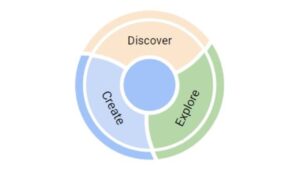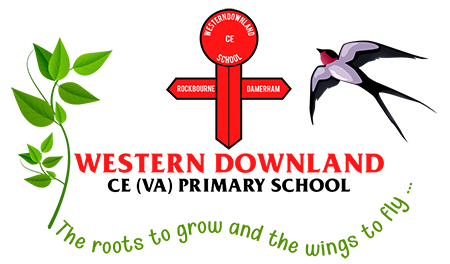Intent
To provide a well-defined and enhanced curriculum based on concepts and key knowledge and underpinned by clear rationale and conceptual rigour that enables learners to retain and transfer learning. Learners will make connections between their developing knowledge and concepts, their prior knowledge, and their lived experiences. We will offer diverse, rich-experience learning journeys and empower pupils to use their Literacy, oracy, and digital communication skills to purposefully share and articulate their learning with others.
Implementation
Our curriculum is divided into three subject themed projects (Discover, Explore & Create) across each academic year. Our Discover projects, that take place in the Autumn term, have a historical theme; our Explore projects, that take place in the Spring term, have a geographic focus and our Create projects, in the Summer term, have a Design & Technology focus.
 The projects are mapped out in a way which gives all subjects coverage and depth. Each project has a knowledge organiser which identifies the key substantive knowledge to be taught and is used to assess pupil’s progress. Projects build upon those taught in previous years, giving coherence to pupil’s learning and a chance to extend their knowledge year-on-year. Projects are driven by enquiries and based upon concepts which encourage pupils to ask and answer questions and make connections in their learning.
The projects are mapped out in a way which gives all subjects coverage and depth. Each project has a knowledge organiser which identifies the key substantive knowledge to be taught and is used to assess pupil’s progress. Projects build upon those taught in previous years, giving coherence to pupil’s learning and a chance to extend their knowledge year-on-year. Projects are driven by enquiries and based upon concepts which encourage pupils to ask and answer questions and make connections in their learning.
Impact
Class teachers routinely evaluate the progress of pupils within and across projects through weekly and termly reviews. They make accurate teacher assessments using their knowledge of age related expectations. They analyse how effectively pupils’ are achieving or exceeding expectations and adapt their planning accordingly to meet individual needs. Regular review, assessment and adaptation result in children retaining substantive and disciplinary knowledge. Teachers provide subject leaders with timely summative information about the outcomes of pupils in their class. Subject leaders and senior leaders routinely evaluate the summative outcomes for their area of responsibility. They use this analysis to identify any necessary actions that develop the quality of provision in their subject, to moderate assessments, and to benchmark outcomes against expectations beyond the school.


